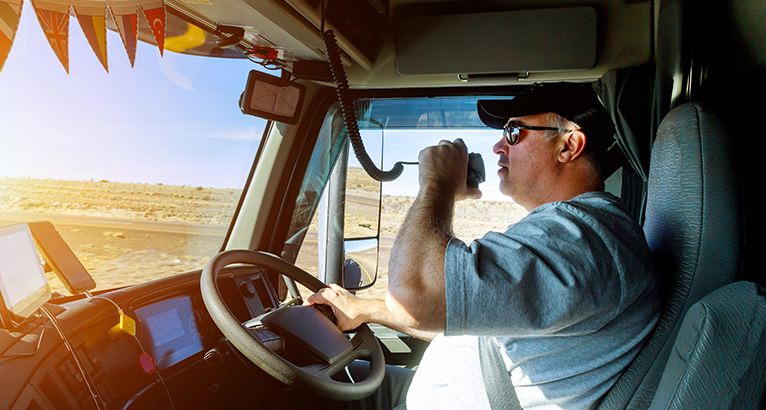In the vast expanse of Texas, where the highways stretch as far as the eye can see, the trucking industry thrives as the backbone of commerce. However, with this economic boon comes a responsibility to maintain safety standards that protect all road users. Understanding the intricate web of Texas’s trucking safety regulations is crucial for anyone navigating a personal injury claim following a trucking accident. This article delves into the impact of these regulations on injury claims, offering a beacon of guidance through the often complex legal landscape.
Understanding Texas Trucking Regulations
At the heart of trucking safety in Texas are the regulations set forth by the Texas Department of Transportation (TxDOT) and the Federal Motor Carrier Safety Administration (FMCSA). These bodies establish the standards that govern everything from vehicle maintenance to driver working hours, aiming to reduce accidents and enhance road safety.
Texas Department of Transportation (TxDOT) regulations are designed to complement federal guidelines, tailoring them to the unique needs and challenges of the state’s vast transportation network. These include specific requirements for vehicle inspections, cargo securement, and driver certification.
Federal Motor Carrier Safety Administration (FMCSA) regulations, on the other hand, provide a nationwide framework for trucking operations. Key FMCSA standards that impact Texas trucking include the Hours of Service regulations, which limit the number of hours a driver can operate a vehicle to prevent fatigue-related accidents, and the Commercial Driver’s License (CDL) requirements, ensuring drivers have the necessary skills and knowledge to operate large trucks safely.
The Role of Safety Standards in Injury Claims
When a trucking accident occurs, the adherence to or violation of these safety standards becomes a focal point in personal injury claims. In Texas, as in other states, the concept of negligence plays a central role in determining liability. A trucking company or driver’s failure to comply with safety regulations can be seen as negligence, making them liable for damages resulting from an accident.
For example, if a truck driver exceeds the FMCSA’s Hours of Service limits and causes an accident due to fatigue, this violation can be used to establish negligence in a personal injury claim. Similarly, if a trucking company fails to perform the required maintenance on a vehicle, leading to a mechanical failure and an accident, this could also be grounds for a claim.
Common Trucking Violations and Their Impact on Claims
Despite the comprehensive nature of Texas’s trucking regulations, violations are not uncommon. Some of the most frequently cited violations include:
- Overloading: Trucks carrying loads that exceed weight limits pose a significant risk on the road, as the excess weight can lead to brake failures and loss of control.
- Failure to secure cargo: Improperly secured cargo can shift during transport, causing the driver to lose control or the cargo to fall onto the roadway, creating hazards for other vehicles.
- Hours of Service violations: Drivers operating beyond the allowed hours can suffer from fatigue, significantly increasing the risk of accidents.
Such violations not only endanger lives but also have a profound impact on personal injury claims. Demonstrating a violation of trucking regulations can significantly strengthen a claimant’s case, potentially leading to a more favorable outcome.
For more insights into how these regulations influence personal injury claims in Texas, visit Personal injury claims Texas.
Gathering Evidence: The Importance of Safety Standards
The success of a personal injury claim often hinges on the ability to prove that a violation of trucking safety standards occurred. This requires a meticulous gathering of evidence, which can include trucking logs, vehicle maintenance records, and cargo loading documentation.
In the aftermath of a trucking accident, securing this evidence swiftly is paramount, as records can be lost or altered, and memories can fade. Expert witnesses, such as accident reconstruction specialists and trucking industry experts, play a vital role in interpreting this evidence, offering insights into how a violation of safety standards may have contributed to the accident. Their testimony can elucidate complex technical details for the court, making the impact of these violations clear and understandable.
The Claims Process: What to Expect
Navigating a truck accident injury claim in Texas is a process that requires patience and a strategic approach. Here’s a simplified roadmap of what claimants can expect:
- Investigation and Evidence Gathering: This initial phase involves collecting all relevant evidence, including police reports, witness statements, and any available video footage of the accident. It also includes gathering evidence of safety standard violations.
- Filing the Claim: With evidence in hand, the next step is to file a claim against the responsible parties. This claim will detail the nature of the accident, the evidence of negligence, and the damages being sought.
- Negotiations: Before a case goes to trial, there is often a period of negotiation between the claimant’s legal representatives and the insurance carriers or legal teams representing the trucking company. During this phase, the evidence of safety standard violations can be a powerful tool in securing a fair settlement.
- Trial: If negotiations do not result in a settlement, the case may proceed to trial. Here, the evidence will be presented to a judge or jury, who will decide on the outcome based on the facts of the case, including any violations of trucking safety standards.
Throughout this process, the importance of timely action cannot be overstated. Texas has specific statutes of limitations for filing personal injury claims, making it crucial to begin the process as soon as possible after an accident.
Case Studies: Safety Standards in Action
Real-life examples underscore the impact of trucking safety standards on injury claims. Consider the case of a truck accident on a Texas highway where the driver had exceeded the FMCSA’s Hours of Service limits. The resulting fatigue led to a serious collision. In this case, the evidence of Hours of Service violations played a crucial role in establishing negligence, leading to a significant settlement for the injured parties.
Another example involves a truck whose poorly maintained brakes failed, causing a crash. Maintenance records revealed a history of neglect, making the trucking company liable for the resulting damages. These cases illustrate how adherence to or violation of safety standards can directly influence the outcome of personal injury claims.
Conclusion
The complex interplay between trucking safety standards and personal injury claims in Texas underscores the need for thorough understanding and strategic legal guidance. For those navigating the aftermath of a trucking accident, awareness of these regulations and their impact on claims can be a powerful asset. By diligently gathering evidence and demonstrating how violations contributed to an accident, claimants can significantly enhance their chances of a successful outcome.
Navigating the legal aftermath of a trucking accident can be daunting, but understanding the role of safety standards offers a roadmap towards justice and compensation. Armed with this knowledge and the support of experienced legal counsel, those affected by trucking accidents in Texas can confidently pursue the compensation they deserve.
FAQs
What are the most important Texas trucking regulations to know?
The most critical regulations include the FMCSA’s Hours of Service, vehicle maintenance requirements, and cargo securement standards. Understanding these can help identify potential areas of negligence in a trucking accident.
How do I prove a trucking company violated safety standards?
Proving a violation involves gathering comprehensive evidence, including trucking logs, maintenance records, and expert testimony. This evidence can demonstrate how a failure to adhere to safety standards contributed to the accident.
Can I still win my claim if the truck driver was compliant with all safety regulations?
Yes, it is possible. Although violations of safety standards can strengthen a claim, they are not the only basis for establishing negligence. Other factors, such as reckless driving or external conditions, can also lead to liability.
Additional Resources
For those seeking more information or support, the following resources can be invaluable:
- Texas Department of Transportation
- Federal Motor Carrier Safety Administration
- National Highway Traffic Safety Administration
Navigating a personal injury claim in the wake of a trucking accident is a challenging journey, but understanding the role of Texas’s trucking safety standards can light the path toward resolution and recovery.




